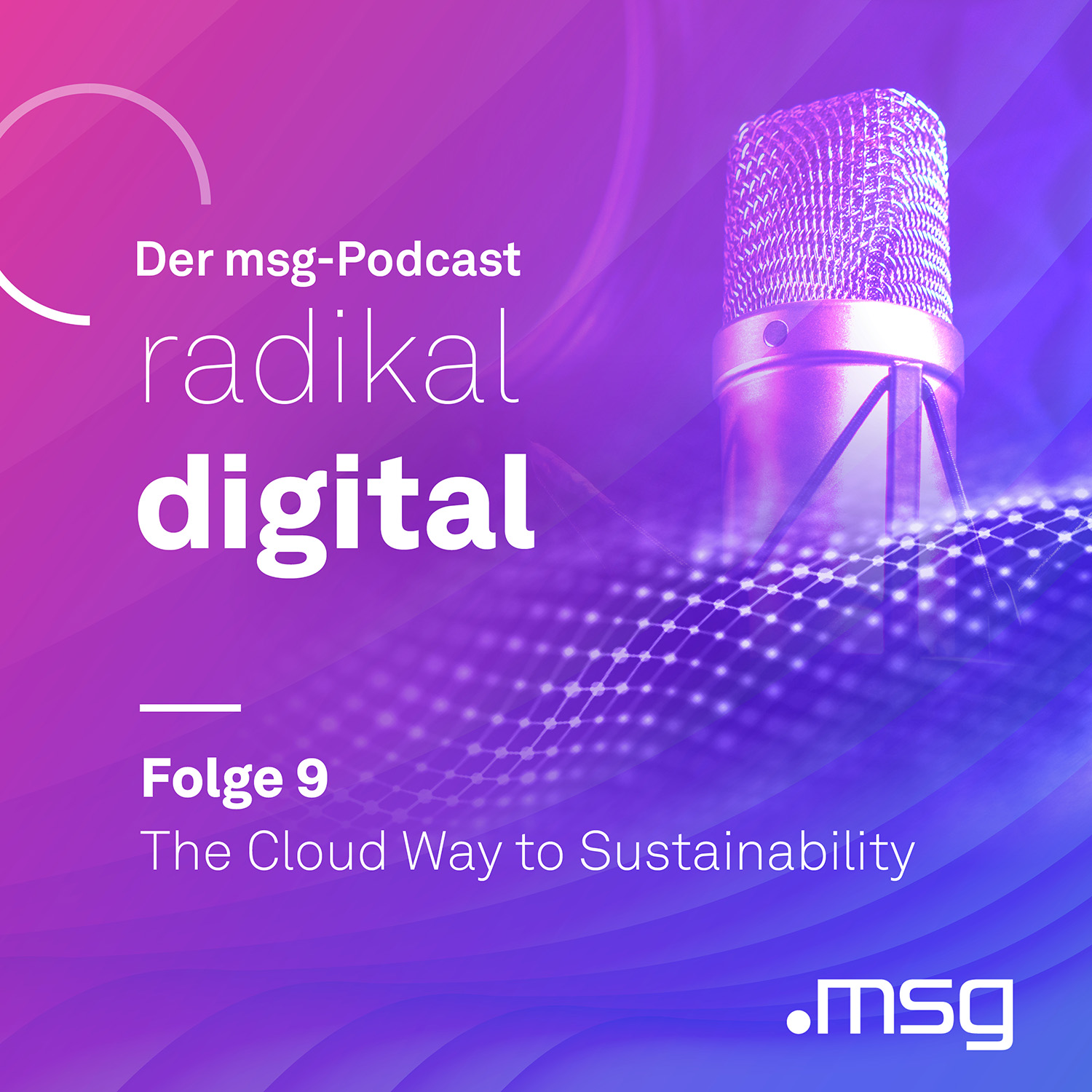Wednesday, 28 June 2023
Today, ESG is far more than just complying with requirements. Its implementation has long been of strategic relevance. Those who ignore this, risk economic decline. Can the cloud be a key lever here? Or does the path to a sustainable company inevitably lead into the cloud? Dr. Lothar Essig and Michael Wilk address these and other questions in this viewpoint interview.
The importance of ESG has fundamentally changed. How do you perceive this at msg?
Dr. Lothar Essig: Absolutely. In our experience, the change from a nice-to-have to an economically and strategically relevant topic has been rapid. Every company now sees sustainable action as essential. Since IT is omnipresent in companies and organizations and consumes significant amounts of resources, it can be a powerful lever here. Keyword excess capacities, redundant hardware, storage resources etc.
Michael Wilk: In short: The market simply demands it. Sustainability is not hype – but, like the topic cloud, by the way, has come to stay. We must also remember that the cloud itself eats up resources, which is why providers must also strive for sustainable solutions.
Speaking of the cloud: Specifically, can the cloud play a role in the shift toward a sustainable economy?
Dr. Lothar Essig: Absolutely. The opportunities this presents cannot be overstated. Just think of the many data centers that are eliminated when companies migrate to the cloud. Of course, this does not reduce energy consumption to zero, but it can mean a drastic optimization of the resources used: Hyperscalers have long been working on a form of circular economy, for example by feeding the waste heat from the computers in turn into district heating networks, to name just one example that fits into the current discussion. Studies by hyperscalers also say that I can achieve five times better efficiency scores by relying on the cloud. That means a roughly 88% lower carbon footprint.
Michael Wilk: And what applies on a large scale also applies on a small scale: for example, if we take a look at small and medium-sized enterprises. They too have a lot of potential when it comes to optimizing their IT landscapes. They can optimize their processes, identify redundant systems and possibly shut down individual systems altogether, resulting in further savings.
Let's move away from the mere sustainability aspect. Today, security is also a powerful argument for the cloud and, in the context of governance, also part of ESG.
Michael Wilk: Yes, this is also confirmed by our customers' wishes. Whereas unanswered questions regarding security were a reason to decide against the cloud – security aspects now increasingly are a strong argument in favor of the cloud.
So perceptions have changed fundamentally?
Michael Wilk: In the past, companies initially focused on costs. And admittedly, they were also quite high at the time. Today, organizations are primarily looking to shorten time-to-market. But soon they will focus more on the added value that the cloud offers them in the transformation to a sustainable company.
Does this mean that the path to a sustainable company leads to the cloud?
Dr. Lothar Essig: Yes, we are certainly convinced that the cloud will play a very important role in implementing the ESG criteria. Of course, that is by no means all; other aspects of Green IT can also make a considerable contribution here. For example, green coding, green architecture and resource-efficient use of hardware and end devices come to mind.
Michael Wilk: In fact, there is a whole range of other ways to make organizations more climate-neutral and to accompany and support them on their way toward a symbiosis of economy and ecology. The development is far from over. But the cloud, especially in conjunction with the right hyperscaler strategy, definitely leads to a greener corporate balance sheet.
Would you like to learn more about the topic? In the ninth episode of “radically digital”, Dr. Lothar Essig, Executive Vice President Group Strategy at msg and Michael Wilk, managing director at msg services GmbH, discuss the strategic opportunities and perspectives that open up when we look at the topics of cloud and sustainability in a linked way. Listen now


